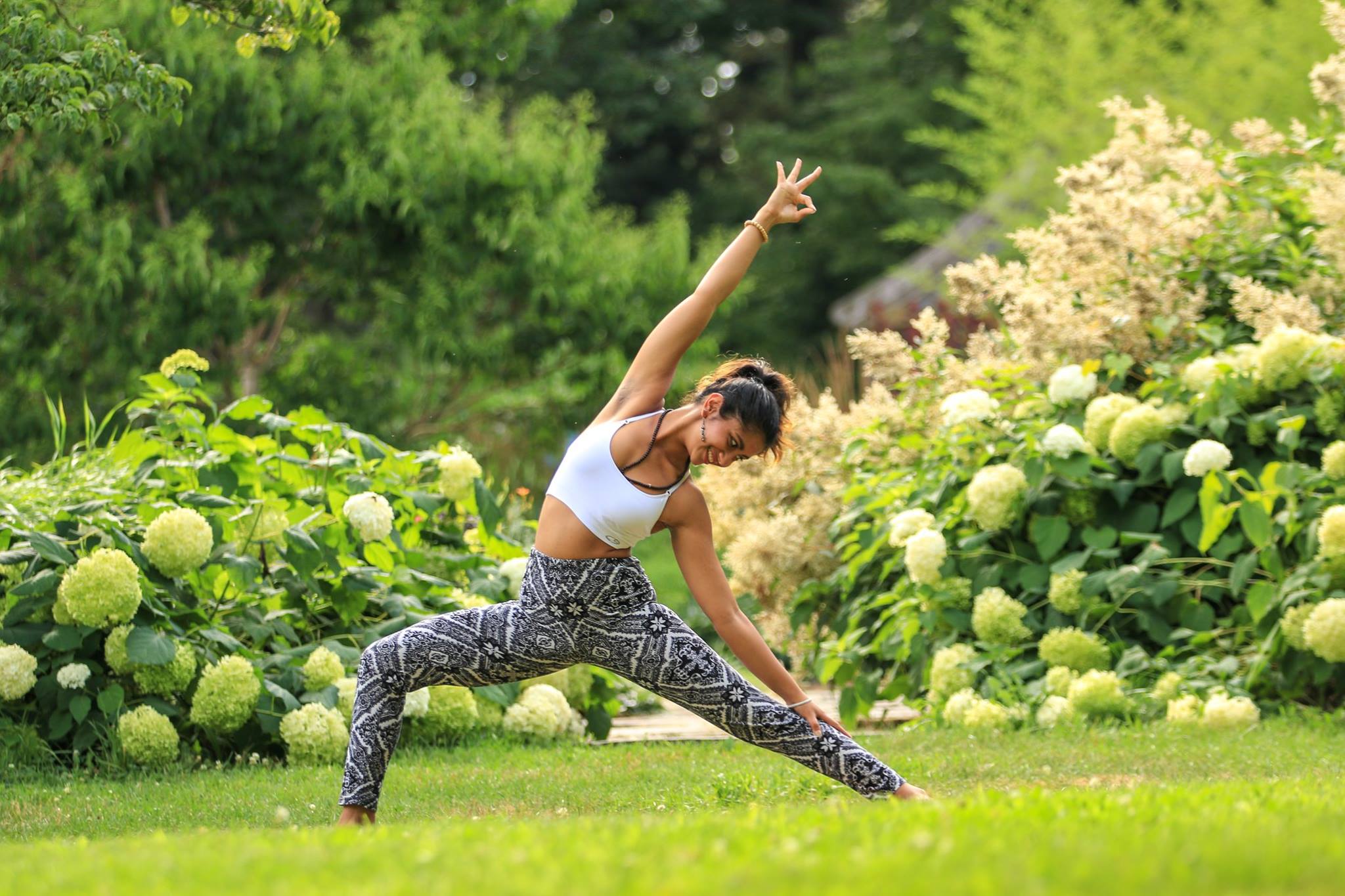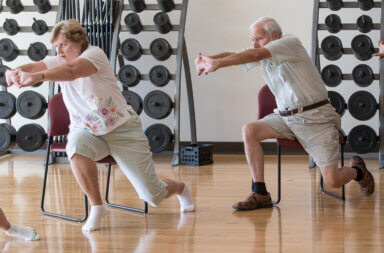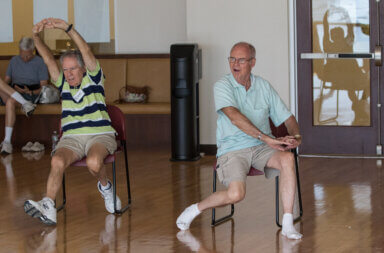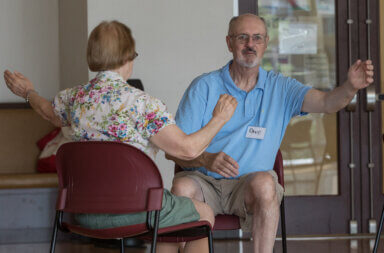Dance
Dance in the Community
Somatic Teacher Training
Mason Gross Dance offers two distinct somatic teacher training programs—Pilates and Yoga—which provides the Rutgers University and extended community valuable certification in specialized content knowledge and skills.

Polestar Pilates
Polestar Pilates is an industry leader in research-based Pilates practice. In the training, participants learn how to embody, plan, and teach beginner, intermediate, and advanced Pilates sessions to meet the varied needs of fitness clients in private, semi-private, and group fitness settings. Topics include client fitness screenings; Polestar principles of movement (an online course taught by Polestar founder Dr. Brent Anderson); Polestar lesson design and sequencing; movement cueing (verbal, imagery, tactile); and movement precautions and their modifications for special populations.
For more information, visit Polestar Pilates or contact Frederick Curry.

Yoga Teacher Training
June 2–August 8, 2025.
Asynchronous + In-Person Community Meetings on Wednesdays from 6–8:30 p.m. at the Nicholas Music Center, New Brunswick.
Students and community members alike are welcome to participate in an immersive 200-hour yoga teacher training program designed to elicit knowledgeable, inspired and compassionate yoga teachers. With a strong foundation in anatomy and embodied alignment and the tools to find our unique voice and individuality, our well-rounded program provides students with room for creative exploration and self-discovery.
For more information, contact Taryn Vander Hoop.
DANCE FOR PARKINSON’S AND NEUROMUSCULAR CONDITIONS | DANCE/MOVEMENT CLASS FOR NEURODIVERGENT PEOPLE
Movement Classes Through the Integrated Dance Collaboratory (IDC)
The Mason Gross School of the Arts Integrated Dance Collaboratory (IDC) researches and promotes the role of dance as an effective intervention for public health, wellness, education, and the professionalization of integrated dance arts. The IDC accomplishes this mission by offering two distinct movement classes for our community living with Neuromuscular conditions and for our Neurodivergent community. The IDC believes:
DANCE, as a holistic experience, helps the body reconnect damaged nerve cells.
DANCE supports existing neural pathways and helps to create new, alternative neural pathways to replace those that have been lost.
DANCE increases body awareness using rhythmic counts and patterned steps. This new awareness supports greater movement function; safer encounters in your home, work and recreational environments; and overall better brain health.
Dance for Parkinson’s and Neuromuscular Conditions
Movement classes support:
- Parkinson’s disease and additional Parkinson’s syndromes, Ataxia and Dystonia
- Multiple Sclerosis (MS); Muscular Dystrophy (MD)
- Tic disorders; Essential Tremor
- Huntington’s disease; Amyotrophic Lateral Sclerosis (ALS)
- Alzheimer’s Disease; Dementia
- Different types of arthritis
- Any persons with a congenital condition from birth, or expressed later in life, or an acquired neuromuscular disability of any kind
Movement classes include:
- Working on habitual patterns while seated in a chair
- Standing behind a chair
- Moving safely across the floor
- Working with partners and the group to create dance together to enjoyable music that helps the body and the mind to reconnect
Finally, and perhaps most importantly, for those who feel socially isolated for any reason, our classes encourage a feeling of community while dancing with others.
Dance/Movement Class for Neurodivergent People



Supported in partnership with Rutgers Center for Adult Autism Services (RCAAS)
Course Title: Dance & Movement for Autistic & Neurodivergent Adults
Listed under the Division of Continuing Studies
Mason Gross School of the Arts Community Dance
This dance class is designed to explore the concepts of space, time and rhythm, the body, and qualities of movement. This class will encourage a creative exploration of movement possibilities by working with various stimulating props to encourage participation and motivation when abstract ideas or too many verbal prompts are not engaging enough. The class will include learning steps that can be explored individually and together as a group. Dancing together as a group or in partners will be included in the class activities, but if the student prefers individual participation, the teacher will make that accessible. No dance training is required, and support guardians or teachers are allowed to participate with the student signed up for the course. If you wish to take this class online please email the instructor: ns1199@mgsa.rutgers.edu.



